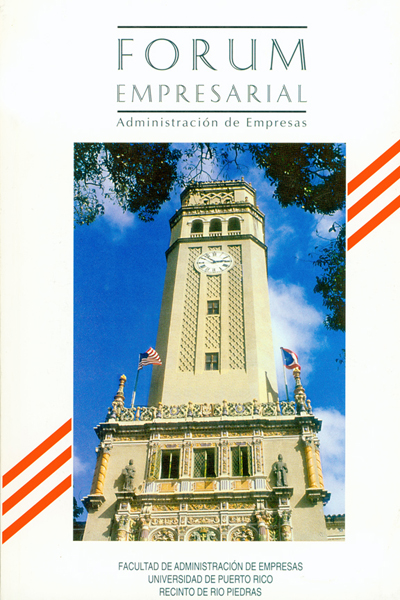Abstract
The author analyzes the experience of more than 3,000 enterprise zones (EZ) in the United States and the ability of this instrument to steer the national economic development of Puerto Rico. Based on this experience, the author concludes that the concept of EZ has limitations inherent to the economic development of Puerto Rico. Firstly, the EZ correspond to a category designed for urban development and is more a complementary strategy than a replacement. In addition, EZ tend to promote a fragmented development with poor linkage to other industrial sectors, such that it is a more temporary instrument of character than permanent. Finally, the EZ do not seem to be adaptable to a highly-skilled labor force, which most characterizes the economy of Puerto Rico.
By submitting a contribution to consideration of the Editorial Board of Fórum Empresarial, the authors attest that it is an original, unpublished work, which has not been nor will be simultaneously submitted to another journal for consideration and publication; that they are responsible for the work carried out and the content of the article; and they have the corresponding copyrights.
The authors grant the right of first publication of their work to Fórum Empresarial, in any medium and physical and electronic format, including internet. Publication shall be subject to the Creative Commons Attribution-NonCommercial 4.0 International License, which allows third parties to share the work, provided that the author and Fórum Empresarial (as a first publication) are cited.
The journal allows authors to retain publishing rights without restrictions. Authors are able to enter into separate, additional arrangements for the non-exclusive distribution of the journal's published version of the work (e.g., post it to an institutional repository or publish it in a book), with an acknowledgment of its initial publication in Fórum Empresarial.

